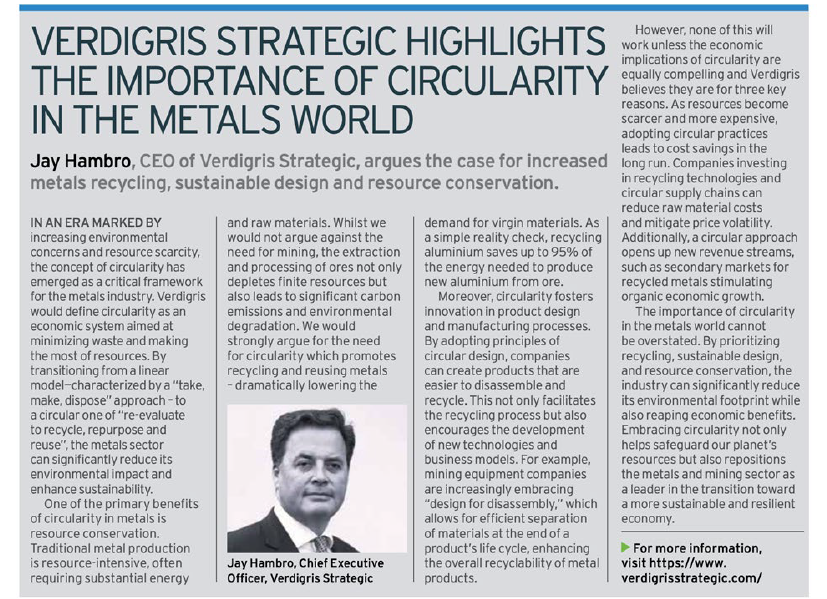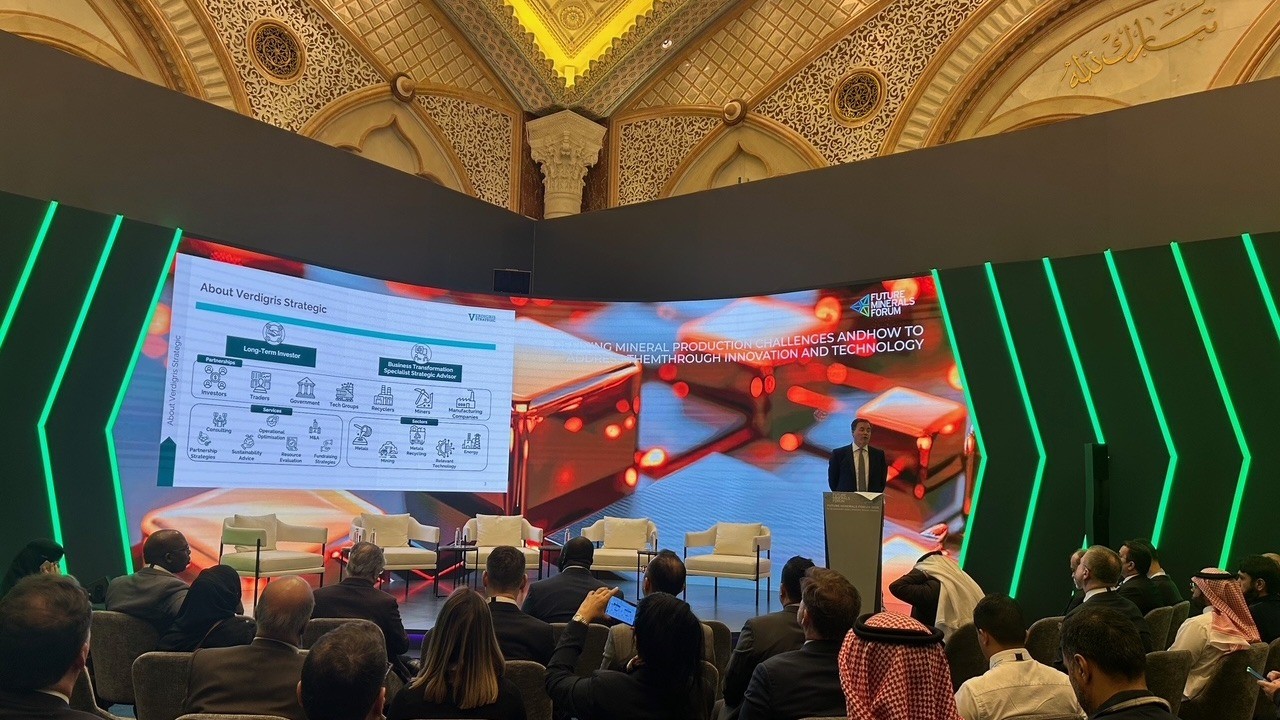Photo: courtesy of Verdigris Strategic
At this year’s Future Minerals Forum in Riyadh, Jay Hambro, the CEO of Verdigris Strategic Ltdpresented a compelling case for increased investment in circular economy initiatives, particularly highlighting the critical situation in European aluminium markets as a cautionary tale of missed opportunities in mineral recycling and resource security.
The presentation, titled “Importance of Circularity to Capital Allocation,” emphasised that less than half of the $410 billion investment needed for materials demand under a Net Zero scenario is currently on track, creating a significant gap that needs to be addressed through strategic capital allocation and policy initiatives.
The European aluminium industry served as a stark example of the consequences of failing to invest in circular economy infrastructure. Over the past three decades, Europe’s share of global primary aluminium production has plummeted from 19.4% to just 5.1%, while the number of active smelters has dropped from 23 to 11. This decline has left Europe increasingly dependent on imports, with only 9% of its aluminium needs met domestically in 2022, down from 27% in 2002.

Perhaps most concerning is what Verdigris Strategic termed “The Aluminium Drain” – the practice of exporting valuable scrap aluminium only to repurchase it later as finished goods at higher prices. In 2021, while Europe imported 6.4 million tonnes of aluminium, it simultaneously exported 1.5 million tonnes of scrap to countries including India, Turkey, and Pakistan.
The presentation highlighted four key drivers making circularity increasingly crucial for future capital allocation:
- Security of Material Supply: Growing supply-demand gaps are emerging for critical materials through 2030
- Carbon Reduction: Critical materials demand is expected to grow 2.2-4.0x across stated policy and Net Zero scenarios
- Rising Commodity Prices: Declining ore grades are driving up costs and threatening the affordability of clean energy transition
- Infrastructure Investment: Significant capital investment is needed in recycling and circular economy infrastructure
Jay Hambro emphasised that circular economy initiatives represent a shift from the traditional “take, make, dispose” model to a sustainable “re-evaluate, recycle, repurpose, and reuse” framework. This transition requires substantial investment but offers compelling returns through resource conservation, innovation in product design, and new revenue streams.
To address these challenges, particularly in the European context, Verdigris Strategic advocated for creating a closed circular economy for scrap aluminium through four key initiatives:
- Enhanced education about the value of scrap materials
- Implementation of targeted tariffs to prevent valuable resource export
- Increased R&D investment in recycling technologies
- Improved scrap quality standards and processing capabilities
The presentation concluded by contrasting Europe’s current situation with Saudi Arabia’s strategic approach to mineral resource development, suggesting that regions failing to invest in circular economy infrastructure risk falling behind in the global transition to sustainable resource management.
As critical minerals become increasingly vital for the green energy transition, the forum highlighted that circularity is not just an environmental imperative but a crucial factor in future capital allocation decisions. The success of these initiatives will depend on coordinated action from governments, industry players, and investors to close the significant investment gap in circular economy infrastructure.

